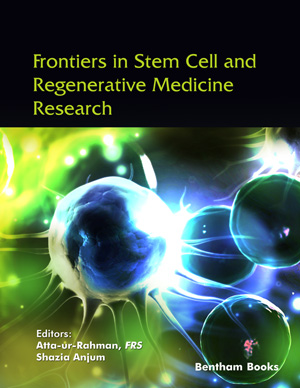
Abstract
Background: Inflammatory bowel disease (IBD) is a global health problem in which gut microbiota dysbiosis plays a pivotal pathogenic role. Mesenchymal stem cells (MSCs) therapy has shown promising application prospects for its powerful immune regulation and tissue repair ability. Recent experimental data suggest that MSCs also regulate the composition of gut microbiota. The current review analyzed, for the first time, the research data linking MSCs and gut microbiota modulation in IBD models aiming at assessing the role of gut microbiota in MSCs repair of IBD.
Methods: A comprehensive and structured literature search was performed up to January 2023 on the PubMed, Web of Science, and Scopus databases. The quality and risk of bias assessment followed the PRISMA guidelines and SYRCLE's tool.
Results: A total of nine pre-clinical studies on animal models were included. Although the dose and route of MSCs applied were quite heterogeneous, results showed that MSCs displayed protective effects on intestinal inflammation, including mice general assessment, immunoregulation, and intestinal barrier integrity. Meanwhile, studies showed positive effects on the composition of gut flora with MSCs administration, which had been characterized by restoration of Firmicutes/ Bacteroides balance and reduction of Proteobacteria. The beneficial bacteria Akkermansia, Bifidobacterium, and Lactobacillus were also distinctly enriched, and the pathogenic bacteria Escherichia-Shigella was conversely decreased. The alpha and beta diversity were also regulated to resemble those of healthy mice. Microbial metabolic functions, such as biosynthesis of secondary bile acid and sphingolipid metabolism, and some biological behaviors related to cell regeneration were also up-regulated, while cancer function and poorly characterized cellular function were down-regulated.
Conclusion: Current data support the remodeling effect on gut microbiota with MSC administration, which provides a potential therapeutic mechanism for MSCs in the treatment of IBD. Additional studies in humans and animal models are warranted to further confirm the role of gut microflora in MSCs repairing IBD.
Graphical Abstract
[http://dx.doi.org/10.1016/S0140-6736(17)32448-0] [PMID: 29050646]
[http://dx.doi.org/10.1053/j.gastro.2016.10.020] [PMID: 27793607]
[http://dx.doi.org/10.1038/s41577-019-0268-7] [PMID: 32005980]
[http://dx.doi.org/10.1053/j.gastro.2016.10.012] [PMID: 27769810]
[http://dx.doi.org/10.1136/gutjnl-2015-309333] [PMID: 25887379]
[http://dx.doi.org/10.1038/s41467-018-07359-8] [PMID: 30518790]
[http://dx.doi.org/10.1038/s41575-019-0258-z] [PMID: 32076145]
[http://dx.doi.org/10.1080/19490976.2017.1290757] [PMID: 28609251]
[http://dx.doi.org/10.3389/fimmu.2022.952071] [PMID: 35990688]
[http://dx.doi.org/10.1002/sctm.17-0305] [PMID: 29635868]
[http://dx.doi.org/10.3389/fcimb.2022.960208] [PMID: 36118029]
[http://dx.doi.org/10.1136/bmj.n71] [PMID: 33782057]
[http://dx.doi.org/10.1371/journal.pbio.1000412] [PMID: 20613859]
[http://dx.doi.org/10.1186/1471-2288-14-43] [PMID: 24667063]
[http://dx.doi.org/10.1089/biores.2019.0022] [PMID: 31720090]
[http://dx.doi.org/10.1186/s13287-022-03118-1] [PMID: 36104756]
[http://dx.doi.org/10.4161/gmic.32147] [PMID: 25144681]
[http://dx.doi.org/10.3389/fcell.2021.642948] [PMID: 34150751]
[http://dx.doi.org/10.1039/D2BM00559J] [PMID: 35858469]
[http://dx.doi.org/10.1016/j.jconrel.2022.05.028] [PMID: 35597403]
[http://dx.doi.org/10.3389/fmed.2021.660614] [PMID: 34249964]
[http://dx.doi.org/10.1038/s41586-019-1237-9] [PMID: 31142855]
[http://dx.doi.org/10.1186/s40779-017-0122-9] [PMID: 28465831]
[http://dx.doi.org/10.4252/wjsc.v13.i12.1905] [PMID: 35069989]
[http://dx.doi.org/10.18632/aging.103962] [PMID: 33168782]
[http://dx.doi.org/10.3389/fcell.2020.00131] [PMID: 32232043]
[http://dx.doi.org/10.1016/j.intimp.2022.108698] [PMID: 35306284]
[http://dx.doi.org/10.1053/j.gastro.2015.03.013] [PMID: 25790743]
[http://dx.doi.org/10.1038/srep30696] [PMID: 27488951]
[http://dx.doi.org/10.3748/wjg.v20.i1.6] [PMID: 24415853]
[http://dx.doi.org/10.1038/nri3661] [PMID: 24751956]
[http://dx.doi.org/10.3389/fcimb.2022.733992] [PMID: 35273921]
[http://dx.doi.org/10.1038/s41579-020-0367-2] [PMID: 32457482]
[http://dx.doi.org/10.1016/j.jiac.2015.07.010] [PMID: 26346678]
[http://dx.doi.org/10.1093/ecco-jcc/jjaa084] [PMID: 32343765]
[http://dx.doi.org/10.3389/fimmu.2020.02058] [PMID: 33042117]
[http://dx.doi.org/10.1038/s41586-022-04985-7] [PMID: 35896748]
[http://dx.doi.org/10.1007/s00253-021-11453-1]
[http://dx.doi.org/10.1038/s41575-022-00631-9]
[http://dx.doi.org/10.1128/Spectrum.00730-21] [PMID: 34612661]
[http://dx.doi.org/10.1002/ibd.21262] [PMID: 20310012]
[http://dx.doi.org/10.3389/fimmu.2020.575173] [PMID: 33123156]
[http://dx.doi.org/10.3390/nu12071973] [PMID: 32630805]
[http://dx.doi.org/10.1016/j.chom.2020.01.021] [PMID: 32101703]
[http://dx.doi.org/10.1016/j.freeradbiomed.2019.12.002] [PMID: 31811920]
[http://dx.doi.org/10.1016/j.molmed.2020.06.006] [PMID: 32620502]
[http://dx.doi.org/10.1016/j.chom.2019.04.002] [PMID: 31071294]
[http://dx.doi.org/10.1038/s41579-019-0213-6] [PMID: 31249397]
[http://dx.doi.org/10.1016/j.chom.2022.02.004] [PMID: 35271802]
[http://dx.doi.org/10.1053/j.gastro.2020.05.067] [PMID: 32485177]










